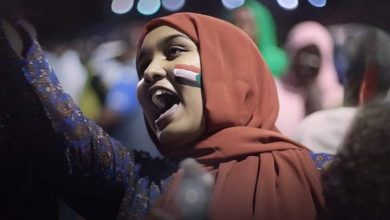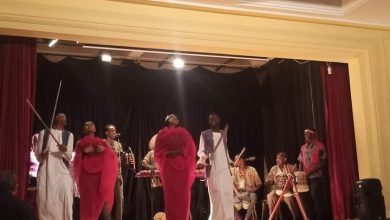Who helps the horses!! (The sound of Taif at the end of the night)

Khartoum – Sudan Events
In the space of silence
The Voice of Taif at the End of the Night, which was published in the eighties of the last century, with its powerful poems, in which Elias Fath al-Rahman extracted the most delicate poetry from the froth of political and cultural chaos and the nakedness of the ugliness of the sinful time.
Ali Al-Mak said in his introduction to the collection: “I do not want this collection of poetry by Elias to fall into the space of silence that is expanding in our country like the destructiveness, desert encroachment, and contemporary hybridity.” Unfortunately, this group fell into the space of that silence and did not receive the attention of critics that it deserved and that Elias deserved as a great poet.
Imagine poems
The dazzling image and language, rich and dense with its perceptions and imagination, are what made the poems chosen by the poet so beautiful.
The collection is almost a spectrum of images that pass over facts, events, people, visions, and dreams, as if they were crossing an ocean of deep contemplations about the darkness of life.
Elias’s poetic images come alive, formulated within the language of texture alone. It is shrouded in mystery at times, and at times the language reveals the essence of its meanings through images that flow from the poet’s imagination to formulate a world that celebrates humans, life, and the joy of poetry.
Elias’s poetic images flow like a river, and there is no way to observe it in its eternal journey except by ascending to the highest peaks of language and its imagination. In his poem (Image), which was inscribed on the walls of Taif Sound, Elias says:
A stabbing thirst, the softest words in his hall
And get high
And Basil
…then
The lovers raised their bowls
The act wore its agitated robe
So he walked in the honey sweat of time.
Pictures full of life
Poetic images meet on astonishing shores, thirst and an air that leaves words in it, and love that drives action to flow honey in the sweat of time.. Oh my God.. where does despair come from with these wonderful strange images, the imagination of poetry frequenting the chandelier. The image of the action goes toward its goal, so consider:
When fear prevailed
Take off the verb and make it shriveled
He cried and retired.
Here, the image of Elias and the extravagant language meet to create a dramatic theater full of life.
An image that you can see, imagine, and almost catch in its unbridled moment.
Elias’s poetry does not know despair or wandering in the spaces of the unknown, but seeks a being of creative and message value that continues to awaken those sleeping in the court of poetry to the great task that the great poets assign themselves.
A wailing wall
The poet says in an interview published in Public Opinion: “My poem is the way I know to combat the lies of history in order to reach the most beautiful and sensitive human being.”
When the sound of Taif at night is an attempt to wake up the sleepers and pull them out of the absurdity of their actions and poetry, listening to the voice of the poet-singer becomes possible, and even an enjoyable duty.
Elias Fath al-Rahman did not turn his exile into a wall to cry over the homeland, but rather he turned his exile into a tent. “I resist so as not to be uprooted… by making the nature of exile a positive one. It is a tent, not a prison.”
Throughout all of his poems, Elias’s poetry is almost devoid of the complaints of immigrant poets, as he remains in the midst of the daily actions of his homeland and its people.
The poems vary within one context, integrated with concerns that do not leave it, or in search of anxious answers to confusing questions.
Repost
In his keenness to ensure the security of poets away from the questions of livelihood, Elias says: “Unfortunately, we are still stuck in the question of livelihood and the question of survival.
Let us consider that the ordinary and natural in our country falls into the category of dream and miracle.”
From simple meanings and great values (between a dream and a miracle), Elias derives his poetic energy, and you see him climbing the trunks of palm trees (by circumambulation).
I thought you were in the moment of the storm
You remain standing, my palm tree
What are you calling me for?
My reproach grows on
He directed my bleeding veins.
Then he crosses into the space of his friends or burrows into the mud of politics to explore many of the daily situations and disasters that have befallen the nation.
Then he goes beyond all of that to immerse himself in the issues of his nation, as he did in his poem (Thirty), dedicated to his friends Buland Al-Haidari and Saadi Yousuf , which fully expresses that spirit that rises in poetic action outside the frameworks of its limited geography to become a global anthem with meaning and connotation.
Thank you to the Abdel Karim Mirghani Center, which republished the poetry collection’s poems in a poetry collection called (No One Helps Horses).
I wonder how this collection, which represents a wonderful historical poetic memory, was forgotten? Elias helped us with his poetry, but he is not responsible for helping the horses of criticism!!



